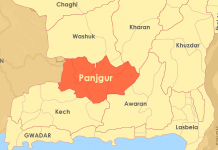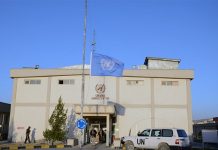Pakistan’s expectations from the ambitiously conceived USD 62 billion China-Pakistan Economic Corridor (CPEC) can at best be categorized as over inflated and unlikely to be met in the long term, an expert on South Asian and Indian Ocean strategic affairs has said.
In an article written for the Sydney-based independent think tank Lowy Institute, Dr. David Brewster of the National Security College at the Australian National University, said the majority belief in Pakistan that the CPEC will “save” the country is dangerous for two major reasons:
. While infrastructure is an essential enabler, it will not guarantee Pakistan’s economic future, especially when it diverts attention from undertaking serious reform of its unresponsive economy.
. Expectations have become so inflated that the CPEC is unlikely to deliver as hoped. Optimistic growth forecasts are already being revised downwards, and therefore, the larger question that surfaces is if these CPEC-related expectations are not met, what will the consequences be for Pakistan’s polity?
Dr. Brewster further says there is a view in Pakistan that the CPEC will bring in large amounts of Chinese cash into the Pakistan economy and stave off the immediate need for painful economic reforms.
He says that despite Pakistan’s unbridled enthusiasm for what the CPEC may bring, the issue at hand is whether Islamabad has the ability to manage its “projected debt loads”.
According to some reports, Islamabad is about to approach the IMF for a new USD three billion bailout package to help repay existing loans.
Sri Lanka, according to Dr. Brewster, provides a classic example of Chinese debt servicing consuming close to 95 percent of Colombo’s revenues, meaning that its economic and political options are now severely constrained.
He admits that Islamabad has rejected some financially unfeasible CPEC projects such as the proposed USD 14 billion Diamer-Bhasha dam project, citing poor economic viability.
Dr. Brewster says in his article that, “Pakistani analysts believe that the country can mitigate risk by attracting non-Chinese investors into key projects. This would make a lot of sense. In theory, collaborations with non-Chinese investors might limit China’s overwhelming economic and political leverage and mitigate security concerns in sensitive projects.”
Investors, he adds, “are extremely nervous of the security, political, and legal environment in Pakistan over which they (unlike Chinese companies) will have little control. Investors may also struggle with the economic viability of some projects.”
According to a recent Washington Times report, Pakistan has proposed that China should build a new naval and air base at the village of Jiwani, some 60 kilometres west of Gwadar.
“This may all just be the back and forth of negotiations, but China may baulk at building a second port at Jiwani when it is spending vast sums at Gwadar, just down the road,” says Dr. Brewster.
For now, the discourse in Islamabad seems to be veering towards seeking more non-Chinese participation in infrastructure-related projects.






























